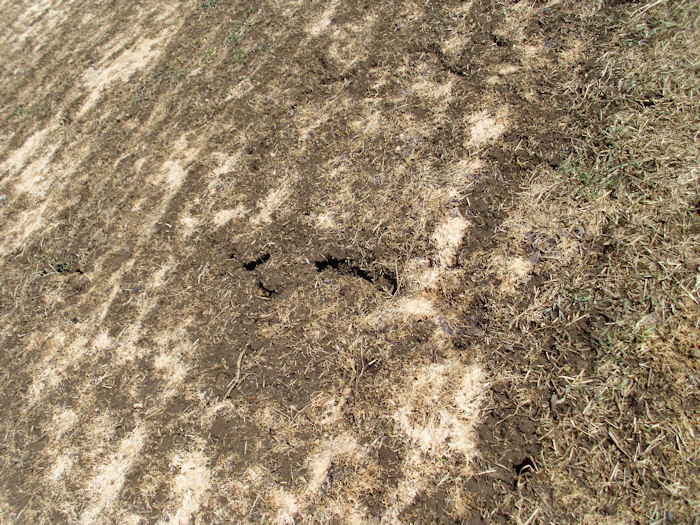Each fall we till the garden up and plant winter rye. It’s amazing stuff because it sprouts in fall and survives the winter months to continue growing in spring! There are a number of reasons for planting winter rye:
- The ground cover holds the soil in place and reduces erosion.
- It fixes nitrogen all winter long and acts as “green manure” when we till it in later in the spring.
- Having something planted in the garden shades out the weeds, so we aren’t fighting the weeds as much.
- Winter rye drinks up the excess moisture, so we can get into the garden earlier (without sinking up to our knees in mud).
There are probably other reasons for growing winter rye, but these four are the reasons we take time to plant it. Unfortunately, we had an early frost this last fall. So, the winter rye sprouted, but didn’t have time to establish itself before the frost hit. As a result, unknown to us, the winter rye died. So our garden is unprotected this spring and I’m already seeing evidence of erosion as shown here.
There isn’t any time to plant more winter rye now. So, we’ll control the erosion in another way, by placing hay bails on the downward side of the garden slope. Using the hay bails will slow the water flow and at least keep the soil in the garden. Of course, the point is that nature doesn’t always cooperate with our plans, so it’s important to have a Plan B (the hay bails in this case).
The hay won’t go to waste. Later this spring, when everything is planted, we’ll use the hay to mulch the garden. Mulching reduces the need to water and keeps weeds under control, but more on that later. So, what do you do to control erosion and keep weeds under control in your garden? Let me know at [email protected].

